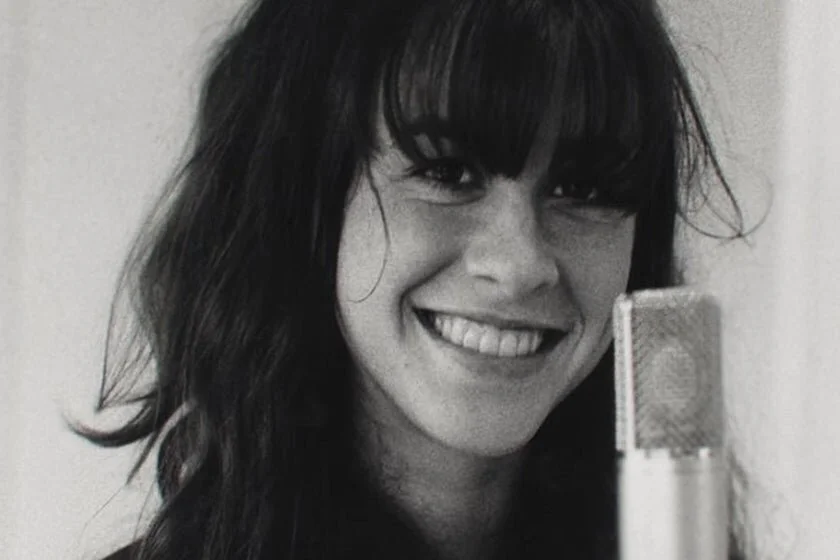Toronto International Film Festival 2021 Review: Benediction
Judging by his last two films, old age does not appear to be agreeing with Terence Davies, which both have far more in common than subject matter. He almost seemed to refuse to do his research for his 2016 Emily Dickinson biopic “A Quiet Passion,” and he doubles down for his latest, “Benediction,” another film that explores the life of a poet, in this case Siegfried Sassoon.
“Benediction” even begins the same way, with Sassoon (played as a young man by Jack Lowden) taking a lone stance against immorality. I’m surprised he also wasn’t referred to as a No Hoper, even if his objection had much more serious ramifications. His refusal to serve in World War I due to reasons of conscience was far ahead of his time, and could very well have resulted in his death, which may have only been avoided due to friends in high places. Well, some things never change.
It didn’t take long for Sassoon to earn my sympathies though, albeit for reasons entirely unintended by Davies. Sassoon at least fares a bit better than Dicksonson, since he’s actually allowed to have sex with the men he prefers and enjoy life for a short while. But we know joy will be short-lived, since early on Peter Capaldi appears as Sassoon’s embittered older self. His repeated appearances throughout are a reminder that things will only get worse, since anyone who takes an opposing view will be punished - mostly by the loneliness of old age. As a great character once said, why so serious?
Perhaps it is frivolity that Davies is unable to bear. In depicting Sassoon’s (relatively) idyllic youth, he keeps a tight focus on the friendship and conflicts, romantic and otherwise, in his close-knit social circle that was insular by necessity. In the early 1900s, the love that dare not speak its name was quite unspeakable, and could be harshly punished, both by legal and social means. That world doesn’t seem to factor in much though, since the preferences of these men seem to be an open secret that was mostly accepted by those around them, including the women.
Why not though, since these eligible, wealthy bachelors were expected to marry some of those women eventually? Not that they make much of an impression. There’s a few older women, some ridiculous, a mother, and Sassoon’s wife Hester Gatty, played at a young age by Kate Phillips, who basically pops up for a cameo, then conveniently reappears just when Sassoon decides he must marry. Sassoon remembers the oyster gray silk number she was wearing rather than herself, to which she smilingly responds, “You’re supposed to remember me, not the dress.” (Girl, run.) In case the sense of doom was somehow unclear, Davies reinforces it by having their conversation take place under an arch reading, “Though he slay me, yet will I trust him.” Subtle.
The truly baffling thing is how beautiful the rest of the film actually is as it vividly depicts a world of wealth, culture, and cruelty. Davies is skilled enough to make the setting come to breathtaking life and makes every bit of dialogue sting. There’s also cinematographer Nicola Daley, who knows her way around period dramas, having worked in shows that include “Gentleman Jack” and “Harlots,” which also found beauty in darker subject matter. He also has Lowden, who moves through the film like a tightly coiled spring that’s never quite allowed a release.
But Davies not only removes every joy that Sassoon experiences early on in “Benediction,” which eventually includes an embittered marriage and the almost as conflicted relationship between Sassoon and his adult son, he seems to relish the grotesque. World War I dominates the film, and Sassoon’s life and work in general, to a degree that seems to wipe away nearly every other aspect of it. Even casual research on Sassoon will confirm that this experience did shape and greatly change him, but it also reveals there was far more to him than war and trauma.
Davies’s almost hysterical focus on that trauma, as well as the bodies and casualties involved, doesn’t just reduce Sassoon to his pain, it seems to fuel the deep sense of internalized homophobia which was a simmering undercurrent in “A Quiet Passion” and rises to a fever pitch in “Benediction,” which seems unable to comprehend any of its gay men finding anything resembling lasting happiness and love.
Any film or piece of art in general is going to in some sense reflect the artist, but biopics should at least try to capture a sense of the life and perspective of those they’re depicting. But I doubt I’ll find much of who Sassoon or Dickinson actually were in his bleakly deterministic offerings. Davies has long been open about his own homosexuality, and the self-loathing and celibacy he’s embraced as a result. But he should leave his fellow queers out of it.
The last image of the film, a young Sassoon sobbing in his military uniform, will no doubt evoke comparisons to the final moments of Luca Guadagnino’s “Call Me By Your Name.” But “Call Me” not only embraced beauty as well as pain, it made a case for love even when it couldn’t last due to forces larger than even the most passionate of lovers. Davies may share Guadagnino’s keen eye for aesthetics, but not his ability to embrace a wide spectrum of human experience. And the final image of the young Sassoon’s tears, which should be a poignant ode to the trauma the world demands we conceal, is instead a reductive take on the complex life of an artist who was showered with praise and accolades and found great friendship as well as great loss.
Emily Dickinson at least received an on-screen rescue in Madeleine Olnek’s joyously queer “Wild Nights With Emily” a few years later in 2018. Will someone do the same for Sassoon?
Grade: D




